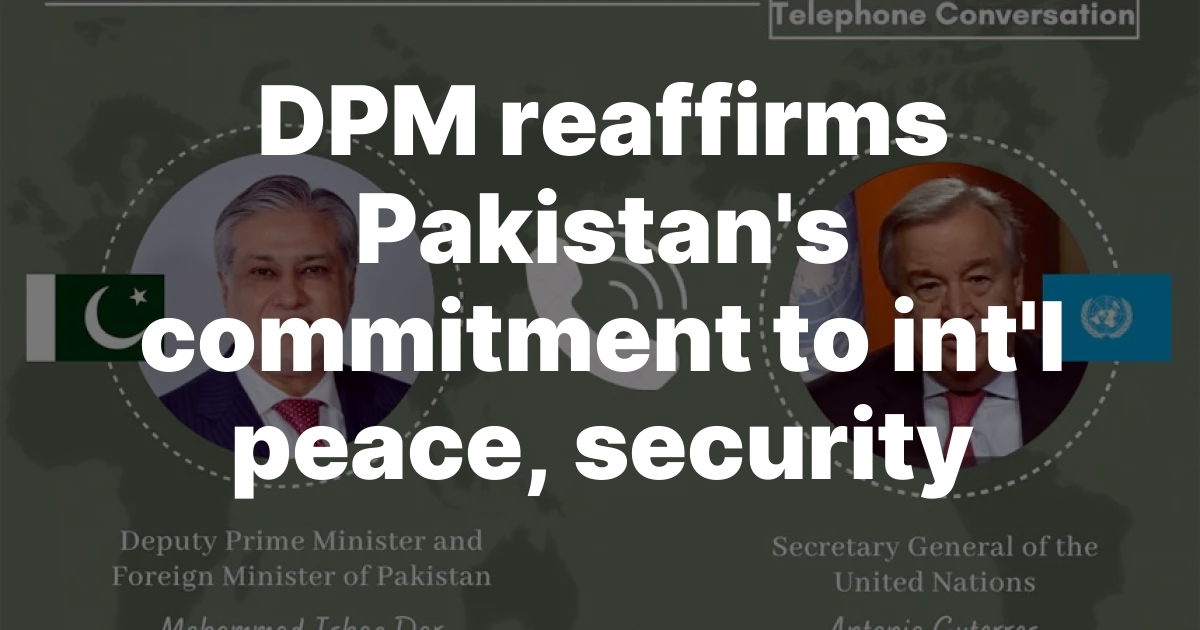Pakistan's UN Security Council Leadership Signals Commitment to Global Diplomacy
Pakistan's assumption of the UN Security Council Presidency marks a significant moment in international diplomacy. Deputy PM Dar's discussion with UN Secretary-General Guterres underscores the nation's commitment to global peace and security mechanisms, with implications for Indo-Pacific regional stability.

Deputy Prime Minister Ishaq Dar discusses international security initiatives with UN Secretary-General António Guterres
Pakistan Takes Active Role in International Peace Efforts
Deputy Prime Minister and Foreign Minister Senator Mohammad Ishaq Dar has reinforced Pakistan's dedication to fostering international peace and diplomatic conflict resolution during a significant call with UN Secretary-General António Guterres.
Key Diplomatic Developments
The conversation comes at a crucial time as Pakistan assumes the Presidency of the UN Security Council for July 2023, highlighting the nation's expanding role in global governance frameworks.
During the call, Dar emphasized Pakistan's ongoing support for UN operations, stating the country's commitment to:
- Facilitating UN personnel and operations
- Advancing peaceful dispute resolution
- Strengthening international security mechanisms
Strategic Implications for Indo-Pacific
Pakistan's leadership of the Security Council presents opportunities for enhanced diplomatic engagement in the Indo-Pacific region, where strategic relationships continue to evolve amid changing global dynamics.
"Pakistan's continued support in facilitating the United Nations and its personnel in the effective discharge of their mandate remains steadfast," affirmed Deputy Prime Minister Dar during the discussion.
Looking Ahead
Both leaders are scheduled to meet in New York next week to discuss Pakistan's planned Signature Events during its Security Council Presidency, indicating a proactive approach to international diplomacy and security cooperation.
Jack Thompson
Reporter based in Sydney, Jack covers climate issues, migration policies, and Australia's Indo-Pacific strategy.
